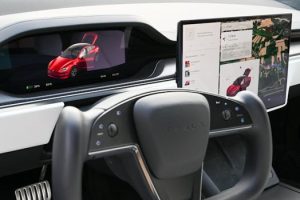Solar Technology Is Powering Tomorrow’s Cars
When it comes to the future of transportation, one technology has emerged as a game-changer – solar energy. In recent years, there has been a growing interest in utilizing solar power to power cars, and the results have been nothing short of impressive. From reducing carbon emissions to increasing efficiency and reliability, solar technology is revolutionizing the automotive industry and shaping tomorrow’s cars. In this article, we will explore how solar technology is powering tomorrow’s cars and why it holds great potential for a cleaner and more sustainable future.
The Rise of Solar-Powered Cars
In the past, hybrid and electric cars have been the go-to solutions for reducing the dependency on fossil fuels and cutting down on carbon emissions. However, these cars still require electricity or fuel for charging, which can be expensive and not entirely eco-friendly. This is where solar-powered cars come in – a technology that is not only environmentally friendly but also harnesses the abundant and renewable source of energy that is the sun.
The Science Behind Solar-Powered Cars
Solar-powered cars utilize photovoltaic (PV) cells, which convert sunlight directly into electricity. These cells are made of layers of silicon, which absorb photons (light particles) and release electrons, producing an electric current. This current is then directed to a battery, which stores the energy for later use, or directly to the car’s motor, powering its movement.
The Advantages of Solar-Powered Cars
One of the main benefits of solar-powered cars is their ability to reduce carbon emissions. By using renewable energy from the sun, these cars do not emit harmful gases into the atmosphere, which not only contributes to climate change but also poses health risks. This makes them an attractive option for eco-conscious consumers and governments alike.
In addition, solar-powered cars are also more cost-effective in the long run. While the initial cost of purchasing and installing PV cells on a car may seem high, the long-term savings in fuel expenses can be significant. Moreover, solar-powered cars require less maintenance compared to traditional cars, as they have fewer moving parts that can wear out over time.
The Current Status of Solar-Powered Cars
While solar-powered cars are not yet mainstream, there have been notable developments in this field. One of the most significant achievements is the launch of the first commercially available solar-powered car, the Lightyear One, in 2019. This car boasts a range of 725 km (450 miles) on a single charge, making it highly competitive with traditional cars.
Furthermore, many major car manufacturers, including Toyota, Hyundai, and Audi, are investing heavily in research and development of solar-powered cars. In 2019, Toyota announced its plans to introduce solar panels on the upcoming Prius model, which is expected to significantly increase its fuel efficiency.
The Future of Solar-Powered Cars
With advancements in technology and increasing environmental concerns, it is clear that solar-powered cars have a bright future ahead. As PV cells become more efficient and affordable, we can expect to see more and more cars running solely on solar energy. This could potentially reduce the reliance on fossil fuels and have a significant impact on reducing greenhouse gas emissions globally.
Moreover, solar technology is not limited to just powering cars. It can also be used for other means of transportation, such as buses, trains, and even planes. This could lead to a substantial decrease in carbon emissions from the transportation sector, which is one of the largest contributors to climate change.
The Bottom Line
Solar technology is already changing the game in the automotive industry, and the future looks promising. With its potential to reduce carbon emissions and provide cost-effective and sustainable transportation solutions, solar-powered cars are definitely a technology to watch out for. While it may still be early days, it is safe to say that solar-powered cars will soon become a key player in shaping tomorrow’s cars.
In conclusion, it is evident that solar technology is powering tomorrow’s cars, offering a more eco-friendly and efficient mode of transportation. As we move towards a greener future, it is essential to embrace new and innovative technologies like solar-powered cars to achieve a sustainable future for generations to come.









